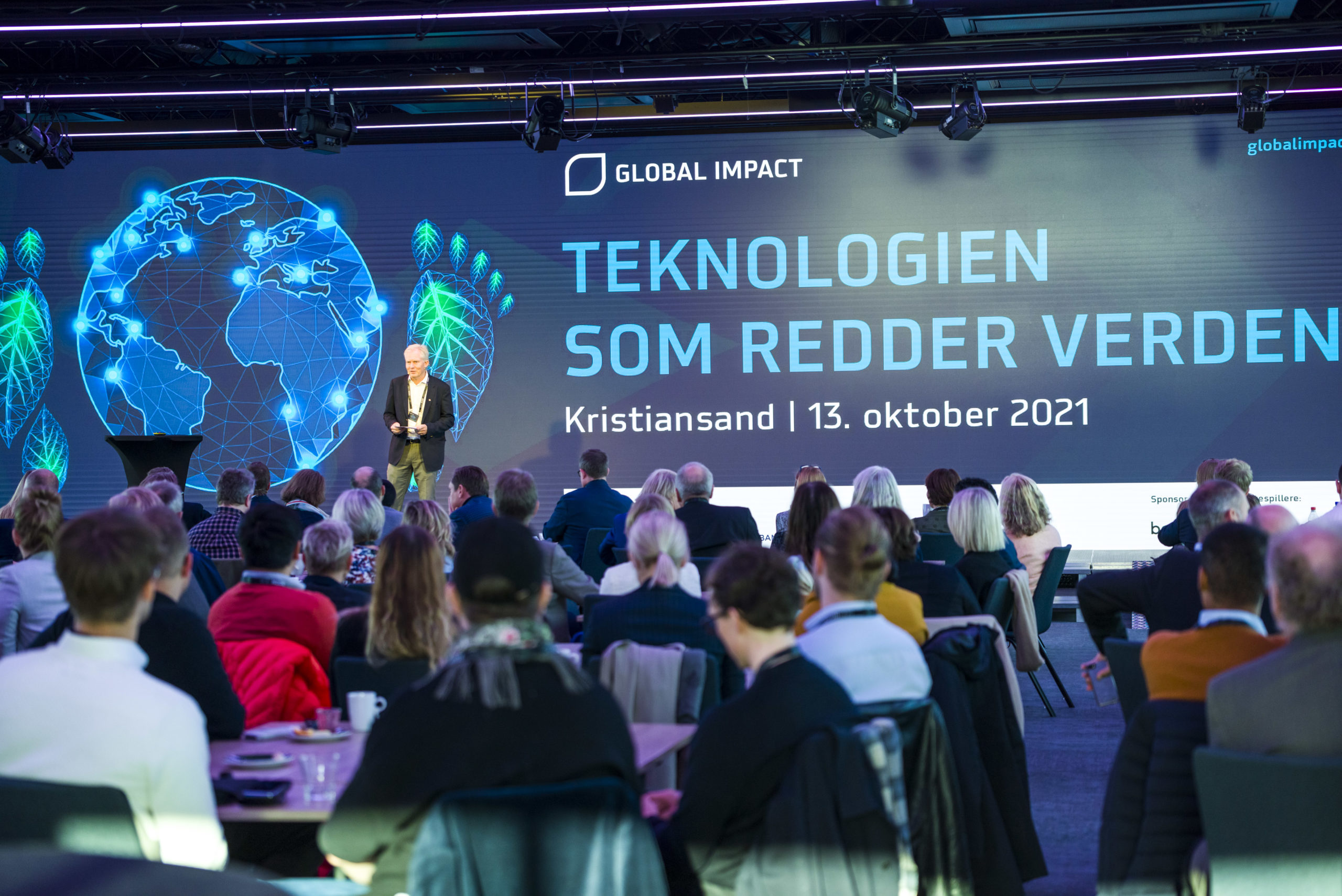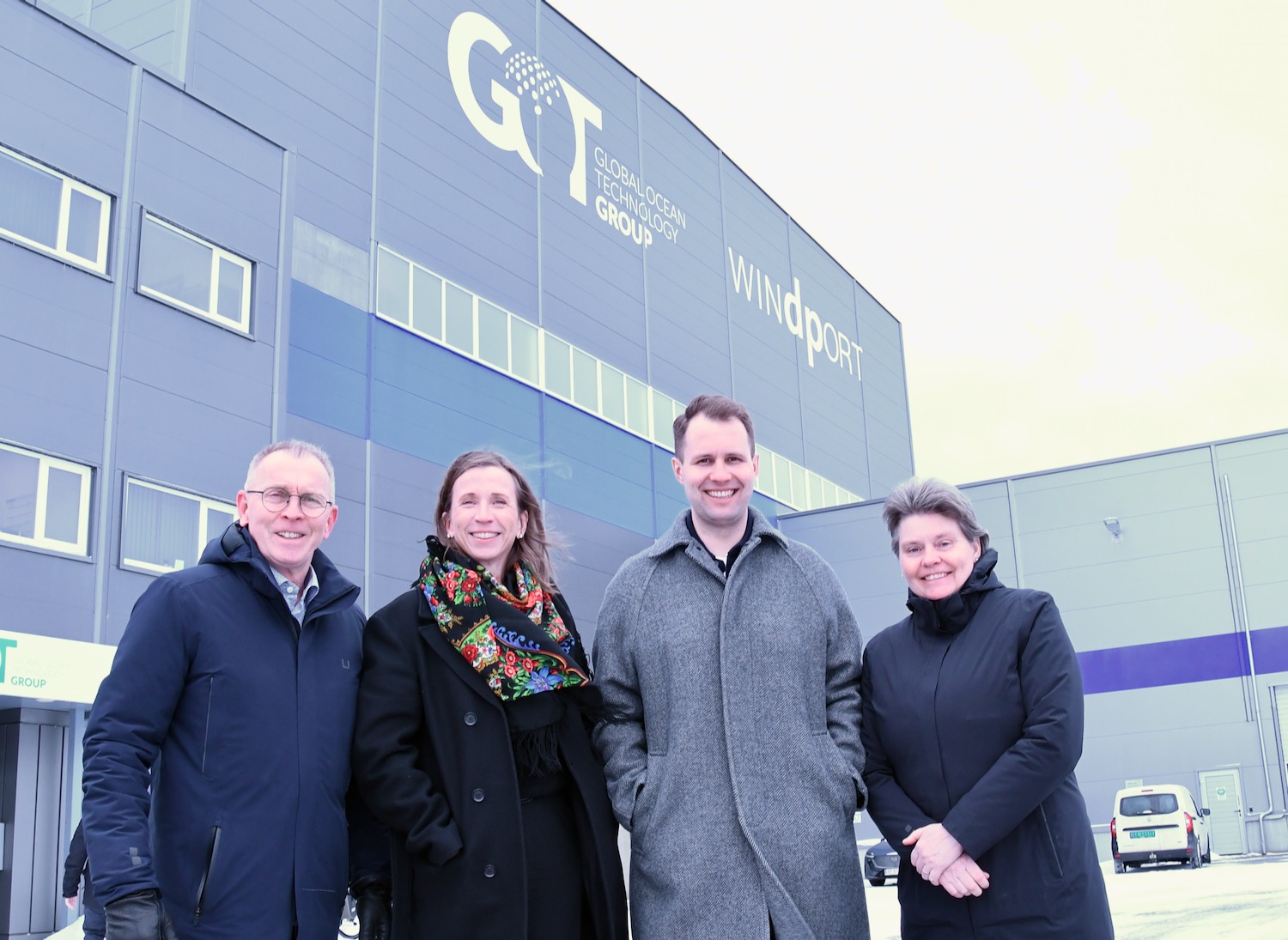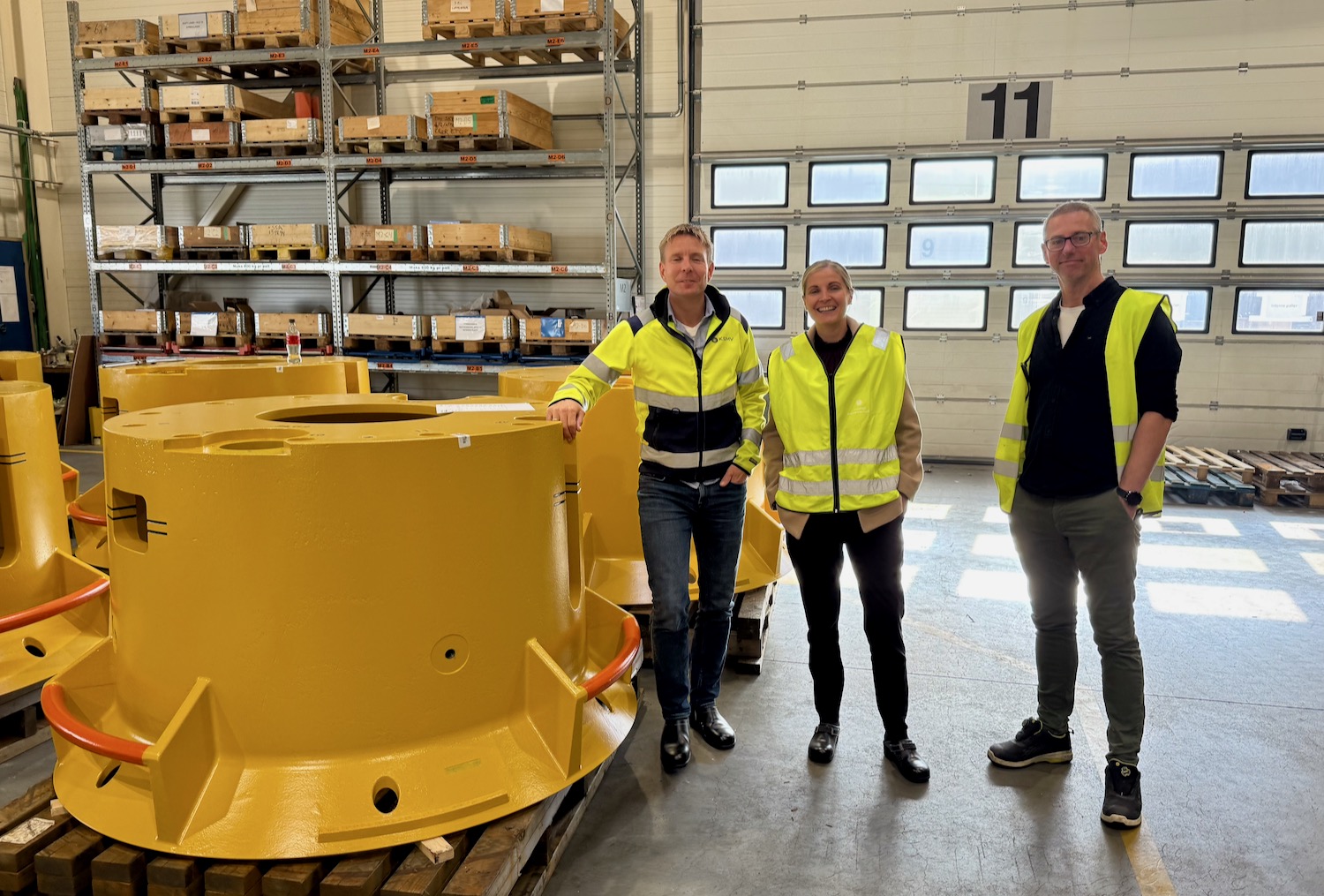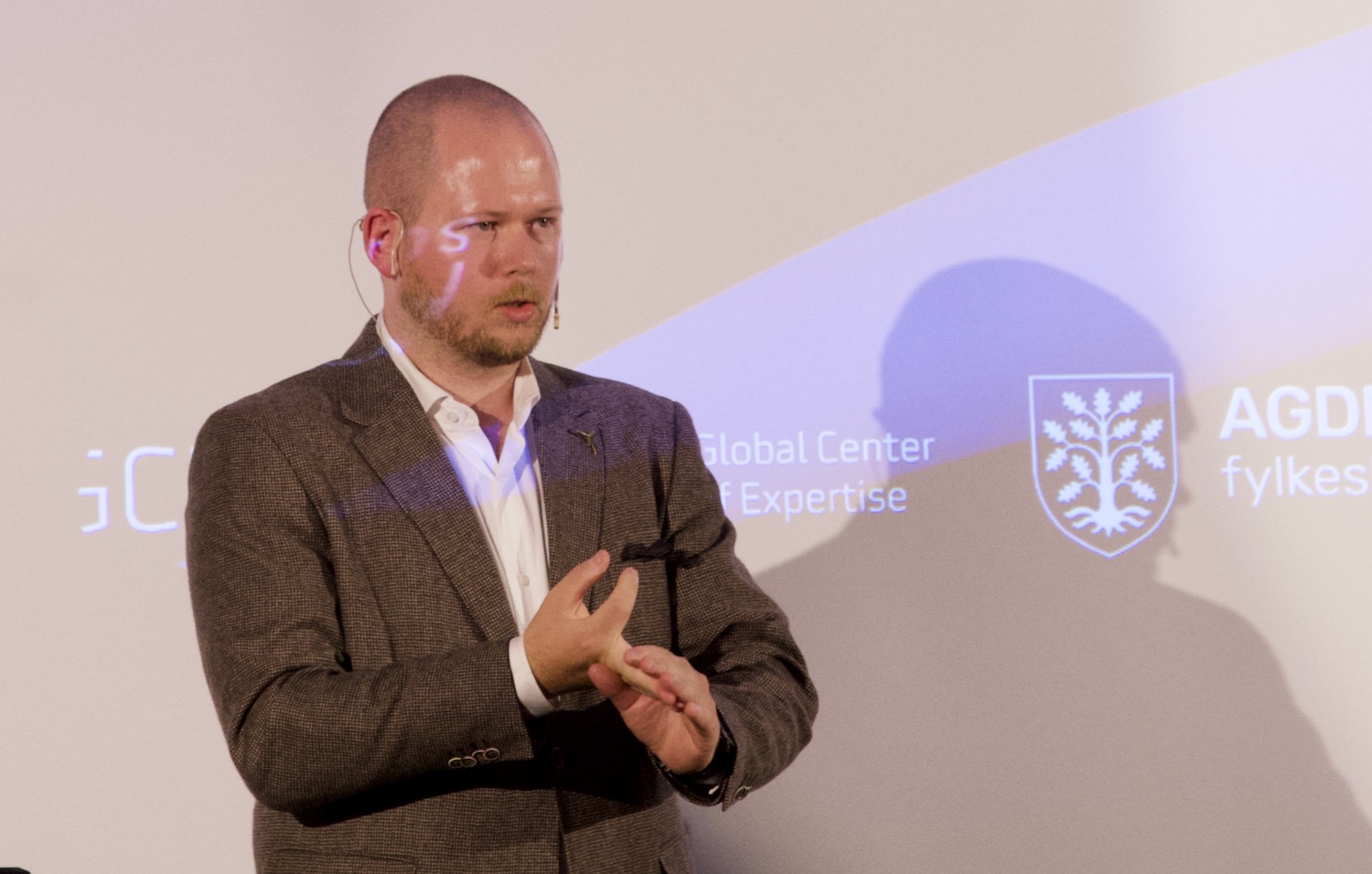“We are moving too slow,” said Sverre Alvik, Head of DNV’s Energy Transition Outlook. He was one of the keynote speakers at the first edition of the conference Global Impact: Technology That Saves the World in Kristiansand Wednesday.
Talking about how technology can combat climate change and secure clean energy for all, Alvik concluded: “Yes, renewable energy is increasing, development of hydrogen is ongoing and carbon capture technology is improving. But not fast enough. We believe the world is on a trajectory which will result in a 2.3 degrees temperature increase in 2100,” said Alvik.

Presented by the City of Kristiansand, The Norwegian Oil & Gas Association, GCE NODE, Business Region Kristiansand, Kristiansand Chamber of Commerce and Sparebanken Sør, the conference discussed and showed how technology can help us reach the United Nations Sustainable Development Goals (SDGs).
Three SDGs were addressed during this year’s conference: No Poverty (SDG 1), Affordable and Clean Energy (SDG 7), and Climate Action (SDG 13).
“To succeed, we must combine various fields of expertise and undertake global ambitions. I am so pleased that this is the focus for this conference,” said Mari Sundli Tveit, CEO of The Research Council of Norway.

She addressed SDG 1 No Poverty and started off by telling the story of Norman Borlaug, a descendant of Norwegian immigrants to the United States. Borlaug led world-wide initiatives that contributed to extensive increases in agricultural production. He is considered by many to be the father of the Green Revolution, and he is credited with saving more than one billion people worldwide from starvation. For his work, Borlaug was awarded the Nobel’s Peace Price in 1970.
Even though Borlaug, through technology, made it possible to extract more produce from the Earth, people continued – and still continue – to suffer and die from starvation. There is food enough for all, but distribution is a problem.
PROOF IN THE PANDEMIC
“The pandemic has shown what humankind is capable of. In record time we produced an effective vaccine based on years of international basic research. Covid is proof that we can solve great problems if we stand together. But again, we fail to include the whole world in these breakthroughs. In Africa, only 4 per cent of the population is fully vaccinated as we speak,” said Tveit.
“Distribution of technology and resources seems to be a repetitive problem. If we fail to include all people and nations in a joint solution, Covid could come back and bite us again,” said Tveit.
She defined combating poverty as a global challenge and predicted that failure to address this challenge will lead to new wars, mass migration, suffering – but also saw it as a missed opportunity to utilize the human resources in a population that has no access to education.
DON’T BLAME THE TECH PEOPLE
Espen Barth Eide, the former Norwegian Minister of Foreign Affairs, addressed the conference with an optimistic view on technology and how technology can save the world.
“I am a strong believer in technology. If we were to wake up one morning and realize that we didn’t succeed, it will not be the fault of our engineers or innovators. It will be because the politics failed,” said Eide.




